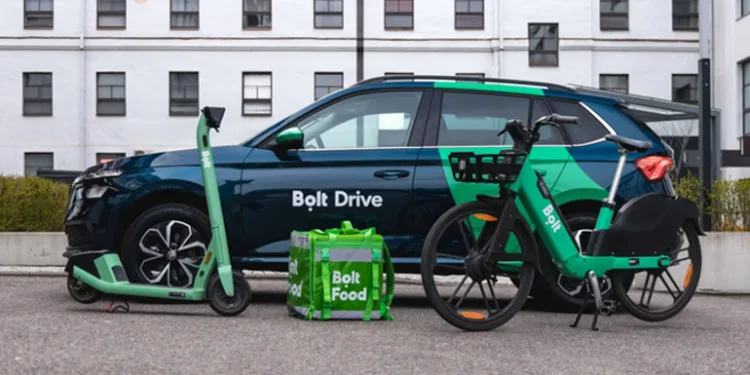In a bold move to penetrate the North African market, Bolt has entered Egypt, posing a challenge to existing competitors in the region.
The prominent mobility platform known for its exceptional services spanning Europe and Africa, has officially declared its expansion into Cairo, Egypt.
This strategic move signifies a pivotal milestone in the company’s expansion efforts into North Africa, as confirmed by a statement released by the firm.
With its proven track record of providing reliable and efficient transportation solutions, Bolt aims to bring its innovative services to the bustling city of Cairo, further solidifying its position as a leading player in the global mobility industry.
FinTech Telex recalls that in February 2024, Bolt unveiled plans to invest a substantial $500 million over the next two years, signalling a robust commitment to expedite its growth trajectory across the African continent. This strategic initiative underscores the startup’s dedication to expanding its footprint in key markets.
In early 2024, the mobility company made a bold move to enter the North African market by officially expanding its services into Cairo, Egypt. This strategic initiative signifies a significant milestone in the company’s expansion efforts into North Africa.
With its reliable and efficient transportation solutions, the Estonian mobile transportation company aims to bring its innovative services to the bustling city of Cairo. This move underscores Bolt’s commitment to expanding its footprint in key markets and solidifying its position as a leading player in the global mobility industry.
Amid established mobile transportation services in Egypt, Bolt is strategically positioning itself to disrupt the market landscape by introducing enticing and competitive offers.
Recognizing the presence of existing players in the transportation sector, the mobile transportation company is set to bring innovation and value to Egyptian consumers, fostering healthy competition and providing them with appealing alternatives for their mobility needs.
This move showcases Bolt’s commitment to delivering not only reliable transportation solutions but also attractive incentives that aim to capture the attention and loyalty of the Egyptian market.
Also Read: MTN’s Profit to Decline by 90% -No Thanks to Naira Devaluation
How Will Bolt Gain Solid Ground In Egypt?
Uber is known to be the most popular mobile transportation company in Cairo, closely followed by InDriver and others.
Making its fifteenth entry into the African market, Bolt aims to take over the market by a strategic move of disrupting the traditional commission structures in the ride-hailing industry.
Unlike competitors such as Uber and Careem, which charge drivers commissions ranging from 22% to 33%, the mobile transport company is taking a customer-centric approach by waiving its standard 15% commission for drivers.
This move not only positions the mobile transportation company as a more attractive option for drivers but also aligns with the company’s commitment to fostering a fair and mutually beneficial ecosystem for all stakeholders.
Furthermore, in a bid to entice riders, the Estonian mobile transport company is offering an unprecedented 50% discount on trips for the next six months. This substantial discount, absorbed by Bolt itself, showcases the company’s dedication to enhancing the customer experience and incentivizing riders to choose Bolt over other competitors.
This innovative model not only differentiates Bolt in the market but also reflects a commitment to creating a sustainable and equitable ride-hailing platform for both drivers and riders alike.
Expressing the importance of the expansion, Bolt’s Egypt Country Manager stated that;
“Egypt is an important market for our entry beyond merely boosting driver revenues; we aim to ignite demand through competitive pricing. By keeping our commissions substantially lower than our counterparts, we ensure drivers earn more while presenting customers with appealing service fees.”
During the last few months, Bolt primarily focused on the Southern African market by entering Zambia, Zimbabwe, and Botswana, and waived driver commissions for six months.










